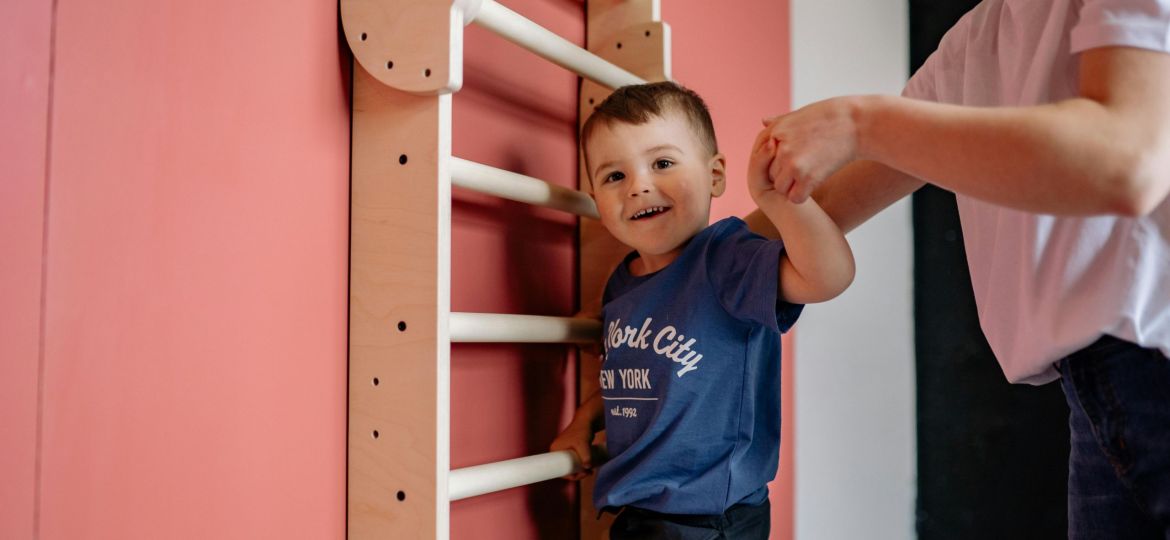
FH Summary: Focusing on consistent effort rather than perfection in childhood development fosters resilience, adaptability, and lifelong learning. By praising the process and modeling perseverance, parents can instill positive habits that lead to significant long-term benefits. This approach not only enhances academic and social skills but also contributes to physical wellbeing.
Parenting is a journey filled with countless opportunities to instill positive habits in our children. However, it’s crucial to remember that the journey itself holds more significance than the end results. In the quest to nurture well-rounded, healthy children, parents often focus on the destination – perfect behavior, top grades, or flawless performance. But what truly matters is the consistent effort and the process of growth. This blog post by First Habits explores why viewing the journey as the goal can create an upward spiral in a child’s development.
The Power of Good Habits
Developing good habits is a cornerstone of a child’s growth. According to Dr. Charles Duhigg, author of “The Power of Habit,” habits are powerful because they create neurological cravings. “When a habit emerges, the brain stops fully participating in decision making. It stops working so hard or diverts focus to other tasks,” Duhigg explains. By fostering positive habits, parents can help their children develop routines that become second nature and therefore don’t sap their willpower or discipline, leading to an upward spiral of positive behavior and outcomes.
Foundations of Childhood Development
The foundation of a child’s development is built upon consistent efforts rather than occasional perfection. Children thrive in environments where they are encouraged to put forth their best effort, regardless of the outcome. Research from the Harvard Center on the Developing Child emphasizes the importance of nurturing stable and responsive relationships.1 These relationships are formed through repeated positive interactions, demonstrating that consistent effort in parenting is key to healthy development.
The Journey vs. The Destination
It’s easy for parents to get caught up in the pursuit of perfection for their children. However, focusing on the journey – the daily efforts and small steps – yields far more benefits. Dr. Carol Dweck, a renowned psychologist known for her work on the growth mindset, highlights that children who are praised for their effort rather than their innate abilities are more likely to embrace challenges and persist in the face of setbacks.2
Dweck highlights some key findings from her study, “In many of our studies, 5th grade students worked on a task, and after the first set of problems, the teacher praised some of them for their intelligence (“You must be smart at these problems”) and others for their effort (“You must have worked hard at these problems”). We then assessed the students’ mindsets. In one study, we asked students to agree or disagree with mind-set statements, such as, “Your intelligence is something basic about you that you can’t really change.” Students praised for intelligence agreed with statements like these more than students praised for effort did. In another study, we asked students to define intelligence. Students praised for intelligence made significantly more references to innate, fixed capacity, whereas the students praised for effort made more references to skills, knowledge, and areas they could change through effort and learning.”
This growth mindset (read more on that here) fosters resilience and a love of learning, essential traits for lifelong success.
Compounding Childhood Habits
Positive habits, when consistently reinforced, compound over time to create significant improvements in a child’s behavior and development. For instance, regular reading habits can enhance language skills, critical thinking, and empathy. Similarly, establishing routines around healthy eating and physical activity can prevent issues like childhood obesity and asthma. By praising effort rather than outcome, parents can provide the key reward section of the habit loop (explained in our foundational post here) that can then create a habit loop even when the outcome isn’t perfect.
An Example: The Story of Jake
Consider the story of Jake, a ten-year-old boy who struggled with reading. His parents decided to focus on the effort rather than the outcome. They set aside time every day to read together, celebrating the time spent rather than the pages read. Over time, Jake’s reading skills improved significantly. More importantly, he developed a love for reading, which translated into better performance in school and a broader vocabulary. Jake’s journey illustrates that consistent effort, supported by encouragement, can lead to remarkable progress.
Practical Ways to Emphasize Effort Over Outcomes
Praise the Process
One of the most effective ways to emphasize effort is through praise. Instead of saying, “You’re so smart,” parents can say, “I’m really proud of how hard you worked on that project.” This shifts the focus from innate ability to the effort put into the task. Praising the process helps children understand that their hard work is valued and that it leads to improvement and success.
Set Realistic Goals
Setting realistic and attainable goals is another way to highlight effort. For example, instead of aiming for straight A’s, parents can encourage their children to improve their study habits, dedicate a certain amount of time to homework each day, or seek help when they don’t understand something. These smaller, effort-based goals can build confidence and lead to better outcomes over time.
Model Effort
Children learn a great deal by observing their parents. By modeling effort and perseverance in your own tasks, you can demonstrate the importance of hard work. Share your own challenges and how you overcome them, showing that effort and persistence are key to success. For example, if you’re working on a project at home, talk about the steps you’re taking and how you handle setbacks.
Encourage Persistence
Encouraging persistence in the face of challenges teaches children that effort is more important than immediate success. When your child faces a difficult task, remind them that it’s okay to struggle and that perseverance will help them improve. Share stories of famous individuals who succeeded through persistence, such as Thomas Edison, who famously said, “I have not failed. I’ve just found 10,000 ways that won’t work.”
Elevated Foundations of Childhood Development
Good habits elevate the foundations of a child’s development, creating a stable base for future achievements. When children learn the value of effort, they become more resilient and adaptable. They understand that success is not about being perfect but about persevering and improving gradually. This perspective not only enhances their academic performance but also their social and emotional wellbeing.
Child Behavior and Development
Effort-focused parenting positively influences child behavior and development. According to the American Academy of Pediatrics, children who are encouraged to try their best, even when they fail, develop better problem-solving skills and are more likely to have their positive habits reinforced.3 They learn that mistakes are part of the learning process and are less likely to develop anxiety or fear of failure.
Practical Examples: Daily Activities that Emphasize Effort
Homework and Study Time
Transform homework time into a session that values effort. Create a consistent study routine and emphasize the importance of trying hard rather than just getting the right answers. Provide support and celebrate the effort your child puts into completing their assignments, even if they struggle with the material.
Sports and Physical Activities
In sports, focus on effort and improvement rather than winning or reaching an arbitrary goal. Encourage your child to practice regularly and applaud their dedication and progress. Highlight stories of athletes who achieved success through hard work and perseverance, reinforcing the idea that effort is the key to excellence.
Creative Endeavors
When your child engages in creative activities like drawing, writing, or playing a musical instrument, celebrate the time and effort they invest. Encourage them to experiment and make mistakes, helping them understand that creativity flourishes through practice and persistence.
Conclusion: Celebrating the Journey
In conclusion, the journey of parenting and childhood development is far more important than achieving perfect results. By focusing on consistent effort and the process of growth, parents can help their children develop positive habits that will serve them throughout their lives. Remember, the goal is not to raise perfect children, but to guide them in becoming resilient, adaptable, and lifelong learners. Encourage your children to put forth their best effort and celebrate the journey, knowing that each step they take is a step towards a brighter future.
For more information on habits to focus on with your children and techniques for implementing them, visit the First Habits website and sign up for our weekly newsletter.
References:
1 https://developingchild.harvard.edu/science/key-concepts/serve-and-return/
















